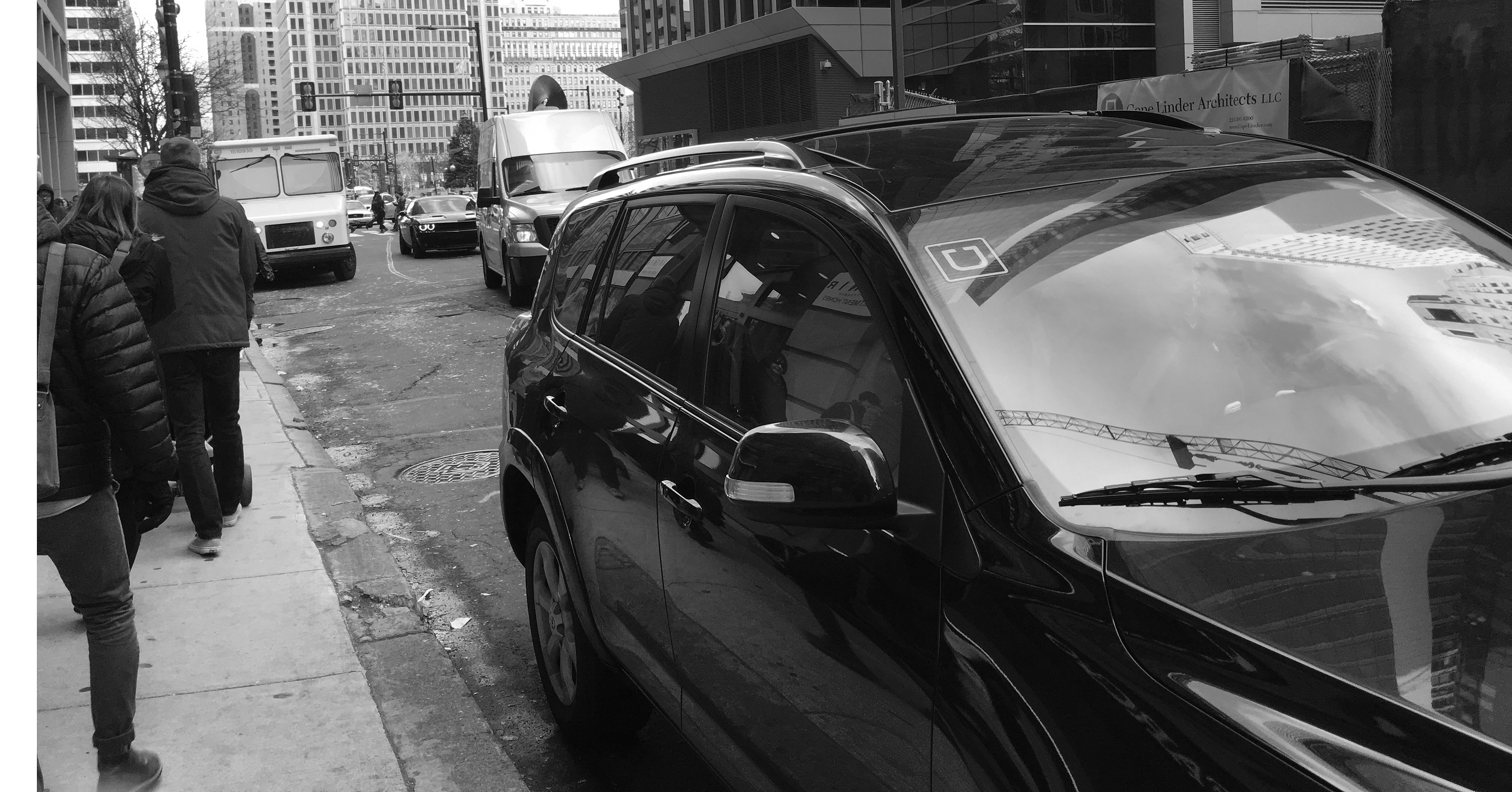Uber bringing new bus-like ‘express pool’ service to Philly, stepping up competition with SEPTA

On Thursday, Uber will expand its extra-cheap Express Pool service to Philadelphia, making it one of six cities to get the new bus-like offering that debuted in San Francisco and Boston last fall and introducing a new threat to SEPTA.
Express Pool will work like Uber Pool, in that drivers will pick up separate passengers and drop them off at different locations. The difference is that Express Pool will usually ask the riders to walk a few blocks to a pickup location, “dynamically located” to maximize trip efficiencies, said Ethan Stock, Uber Express Pool’s product lead, in a video-conference with reporters. Same goes for drop-offs: riders will be let out close to their destination, instead of directly in front of it.
In exchange for walking a little bit and sharing the backseat with a stranger, Express Pool will be up to 75 percent cheaper than Uber X, the company’s standard option to hail a driver using his or her own car, and half the price of Uber Pool. In Philly, that could mean trips across Center City could go for less than $2.50, the cash price for hopping on SEPTA.
That could mean more bad bus ridership numbers for the transit agency already seeing steep declines. City transit ridership declined another 5.1 percent, or 6.25 million trips, during the first half of fiscal year 2018 compared to last fiscal year, which ended June 30, 2017. That’s despite the fact that the six-day transit strike in November 2016 occurred during FY 2017.
SEPTA has acknowledged the impact of ride-hailing like Uber and Lyft on its bus ridership numbers, but noted that most of the ridership declines come during off-peak hours, while rush hour numbers remained strong. That suggests people are using the ride-hailing companies for discretionary trips to the store or to the bar, rather than relying on them to commute to work.
But with Express Pool, Uber is looking to compete with public transit for commuters. “In some areas, particularly areas underserved by transit today, people will see it as a viable option versus public transit,” Stock said. “We would like to get into a state where people are confident in [Express Pool] for their daily commute to and from work.”
According to Stock, Uber drivers can expect to make the same on Express Pool as Pool or Uber X trips. Uber has admitted that they currently subsidize rides, keeping prices artificially low for passengers in an attempt to win a larger customer base and drive out competitors. Uber lost $4.5 billion in 2017, although losses started to slow towards the end of the year, narrowing from $1.46 billion in the third quarter to $1.1 billion in the fourth.
“We’ve made tremendous progress toward profitability over the last year, both overall and on a per trip basis,” said Stock, who added that the company was trying to become profitable through increased efficiency, not prices. But Stock acknowledged that prices could go up in the future.
In addition to Philly, Uber is expanding Express Pool to Denver, Miami, Los Angeles, San Diego, and Washington D.C.
WHYY is your source for fact-based, in-depth journalism and information. As a nonprofit organization, we rely on financial support from readers like you. Please give today.






